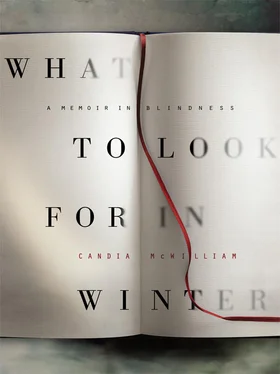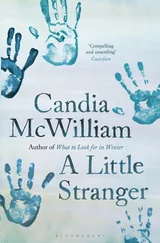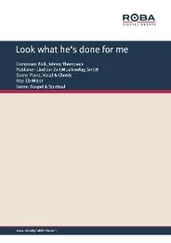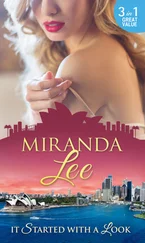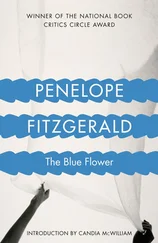I’ve been thinking of writing a memoir for some time or at least a long poetic visit through unearthed memory to Scotland. Now I think I’ll do that next, because this book has not been that. Maybe I shall never be equipped to write it if I remain blind, so distorting is memory; otherwise readers of the putative book might accuse me of having invented Scotland.
That we each invent a world I do not deny. Mine feels unwhole to me at present, without sight and without a presence to give love to, though with many beloved absences, but I know that when I write fiction, I can make something external to myself that is whole. If one cannot daily build love, one must make something. I am digging a hole through the dark.
So, there I was contemplating an, as it were, if not curative, at least helpful book for other addicts. I don’t think this is it.
Then came blindness and the knowledge that here was something I really could share with very many other sufferers. I also had the more self-interested thought that by writing about my blindness and the life that, some doctors hint, has brought it, I might lift it from my eyes.
I’ve never written a novel without having at the start a clear picture of its architectural shape in my mind. To cheer myself up and to give some sort of idea of how I work to my kind amanuensis, who was to type all this out as I spoke it, I thought to write this book in the shape of a pair of spectacles. There’s no point forcing these metaphorical matters; they happen or they don’t.
At this point I’ll touch on religion, or rather, as it feels to me, on faith. To each of the psychiatrists I have seen in my blindness, none of whom has been a Christian (they include two Jews, a Muslim, a Hindu and some humanist atheists), I have made the tired comment that I was born, Darwinianly, with the gene for faith. I think that perhaps rather than calling it a gene for faith, I might more precisely call it an impulse to thank and a consciousness of the creation that, and here’s the rub, I saw so vividly. It was almost in my eyes that my faith inhered and one of the reasons, I am sure, that I have been so unpersoned by my blindness is that I was my eyes, my eyes were how I got to being me. My eyes saw the edges of things and the insides of things and permitted me to write novels about these matters. My eyes gave me jokes that led me to friends who enjoyed my company. Without my eyes, did I still believe?
I still prayed, because I believe that the only way to eradicate a habit is to install a new one and for drink I substituted a different kind of praying from that I conducted while I howled to the dead in drink. It is interesting that in his novel Greenvoe , George Mackay Brown has a drunk woman who, when pixillated, puts herself in the dock and hurls accusations at herself from other personae who reside within her. That’s me.
Over the last two and a half years I have been without independence but with the great gift of the reawakening of my bond with Fram. He said at one point that my faith had been, throughout my life, simply yet another means of punishing myself. He himself does not experience guilt, which is a marvellous lack to have. I subjected his theory about my faith to analysis, scepticism, prayer, conversation with an ex-monk, discussion with religious friends, but there it stuck and I thought, ‘Yes that’s it, I’m blind and I’ve lost my faith. I’ve achieved it, I’ve become a stone, the thing I most fear, the thing my poor maternal grandmother pretended to be, the thing my mother-in-law turned herself into, the thing that Liv’s first name so extraordinarily, coincidentally, contradicts in her surname, a stone.’
Nonetheless, if this is true, why have I not enacted the instructions in the nasty little book I sent off for called Final Exit , an instruction book on how to kill yourself? You may ask how I read it and the answer is with difficulty, holding my eyelids up, very slowly and not fully. As an antidote to it I read the recently published and tremendously, as you would expect, sensible Easeful Death by the philosopher Dame Mary Warnock and a cancer specialist and lawyer, Elisabeth Macdonald.
I was alone, I was blind. Sometimes I felt ‘like death’. Nonetheless, I did not feel like dying. I could not wrest from myself that thing that poets track, that we feel when we wake up on good mornings, that slippery thing that is not death at all but the light that comes before death and that we call life. I couldn’t seem to shake off my faith just as I cannot seem to shake off a conviction that I shall see again, which is not to say that I am not frequently almost completely humanly reduced. It is often at points like this that Cousin Audrey, whose instincts are unerring, will call sometimes simply to say the words, ‘We’re lucky, darling. We’re not in Auschwitz.’ She rings many of my family with this message. It is an undeniable one. I had a glimpse of what the Great War did to Cousin Audrey’s life when last week she told me that every day of her girlhood at Lochinver Lodge began with the raw sound at 5 a.m. of her father vomiting his guts up. It was the trenches he was remembering. His body sicked them up every single dawn until his dying day.
Le Ballon Rouge , a film shown to me repeatedly in childhood, is the story of a little boy who loses his balloon and who is found by many millions of balloons which carry him away and up into the sky. The film, I see now, is about death and loss, and it has stuck with me. I seem, in spite of Fram’s suggestion that it is a punitive faith, still to have it and to understand it as not punitive. It is, if you like, the basket in which I put my few good eggs. I want nothing from it, it is simply my sense of attachedness to other minds, including those long dead, and to the created world. The punitive aspect of my life comes from something that happened to me that has made me mislike myself and agree with those who mislike me; I know it is wrong and a perversion, a bad habit, perhaps private, perhaps generational, perhaps inherited, possibly inflicted. I really don’t know. All I know is that I refuse to pass it on to my children.
This morning on the radio I heard ‘Thought for the Day’, which my devout and commonsensical first husband calls ‘Gutlift’. And yes it often does make you want to heave with the chumminess, the euphemism, the sidelong holy boasting and the presumption of familiarity. Today’s crasher touched on ‘the old lie: dulce et decorum est pro patria mori .’ He referred to the Latin words as ‘The poet Horace’s jingoistic soundbite’.
While there is such bracing illiteracy available in daily life I am too cross and too exhilaratedly pedantic just to curl up and die. What is the man talking about? I hope his wife bet him that he couldn’t get four solecisms into one duff phrase. Or perhaps there’s a stupidity race with points for really dim anachronisms and super-thick conflations. Perhaps then I’m trying to say that my faith is in language. Certainly it is so that the very greatest writers, those who manage by suggestion to give shape to their silences and omissions, come closest to expressing what I am reduced to calling an insistent urge to acknowledge what is and has been beautiful in its wholest sense about life.
Now: the hook of the earpiece of these spectacles. I had written the first lens when one of my doctors suggested that, in sequences of bunched years, I have another go at telling my story and that I, as it were, should blow my clinical cover and at least try to explain to the reader where I am now.
He also wanted me to speculate as to how I might have acted differently when it came to repeated behaviour. By this, I understand him to mean that I have brought unhappy events to bear upon me because I think that in some profound way I deserve it. He is dead right. My system of thought has run along the ‘it’s my fault’ tram-line since before my thought began. Of course, it bores and hampers me that when my brain is idling it is turning on itself. I have tried many antidotes to my obsessive gobbling up of blame, which, I don’t need to be reminded, is in itself a form of egotism.
Читать дальше
